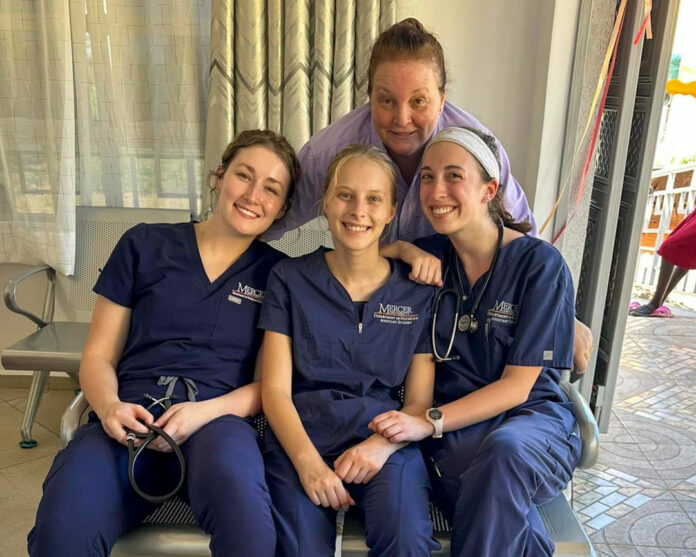
Editor’s note: This column was written by Katie Holliday, Elijah Netjes and Sydney Smith, who are students in the physician assistant program in the College of Health Professions at Mercer University.
Service-based learning plays an essential role in the curriculum of Mercer University‘s physician assistant program. In June, we had the unique opportunity to travel to Kisumu, Kenya, for our pediatric clinical rotation. Mercer alumna Scarlet Holcombe, who graduated in 1991 with her Doctor of Pharmacy, joined us to open a new community clinic that would serve Point of Grace Academy, a primary and secondary school, and the surrounding community in Kisumu.
Our journey began by packing and flying 40 suitcases of medical supplies to Kenya. These supplies included a variety of medications, hygiene items, clothing and more. Once in Kisumu, the next three weeks were focused on providing medical care for the local community and getting to know the students and faculty at the school. Through our time together, we not only learned to appreciate one another’s cultures but also realized the privileges we take for granted.
Our first week in Kenya provided us with a unique experience as June was set to be the grand opening of a new community clinic. It was a privilege to be the first students to work in it. Due to the large number of patients expected, additional tents were set up outside the clinic to accommodate all of the patients.
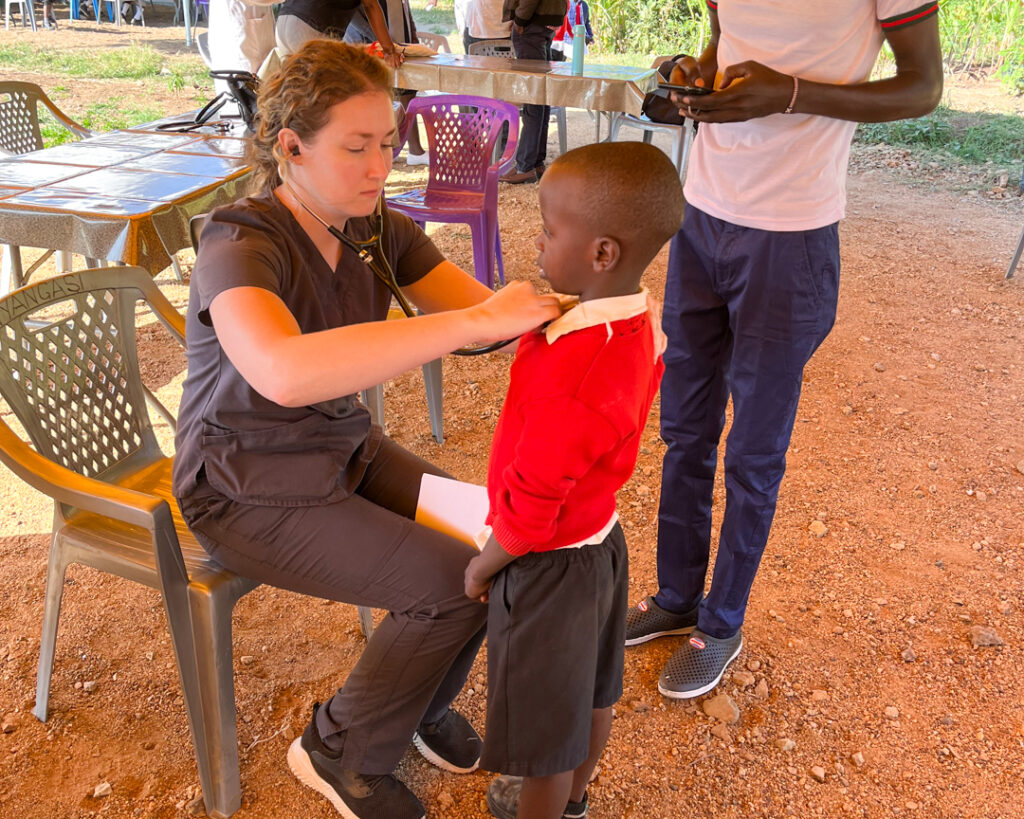
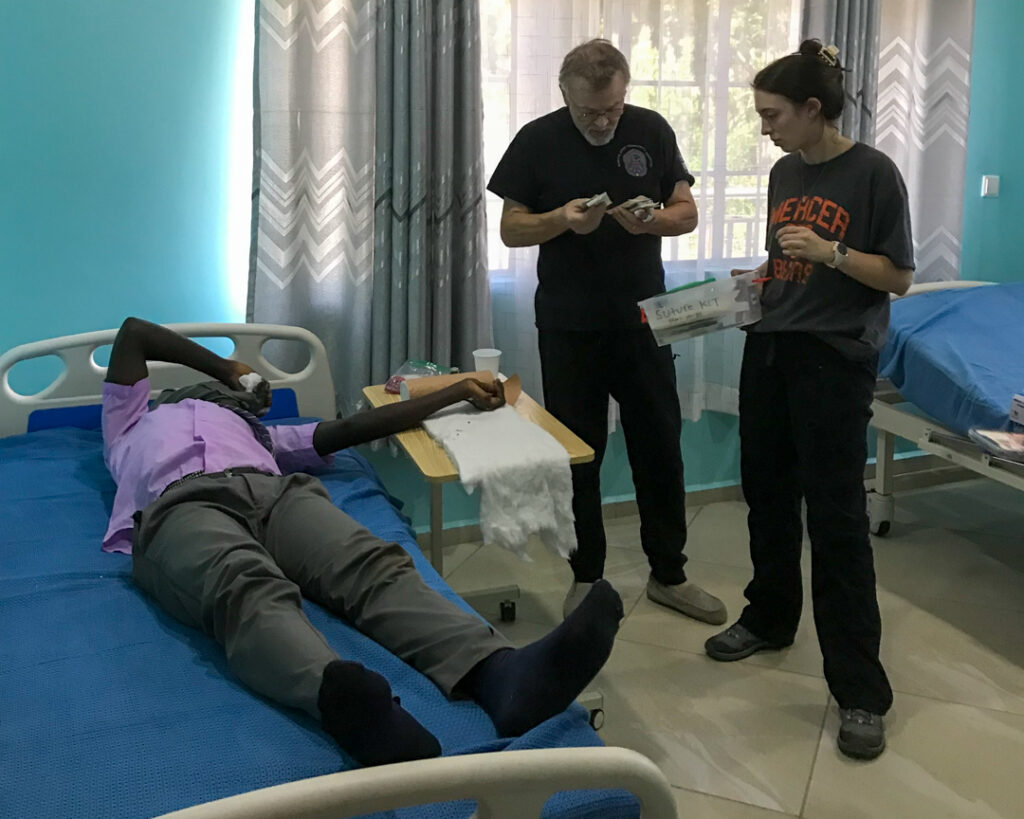
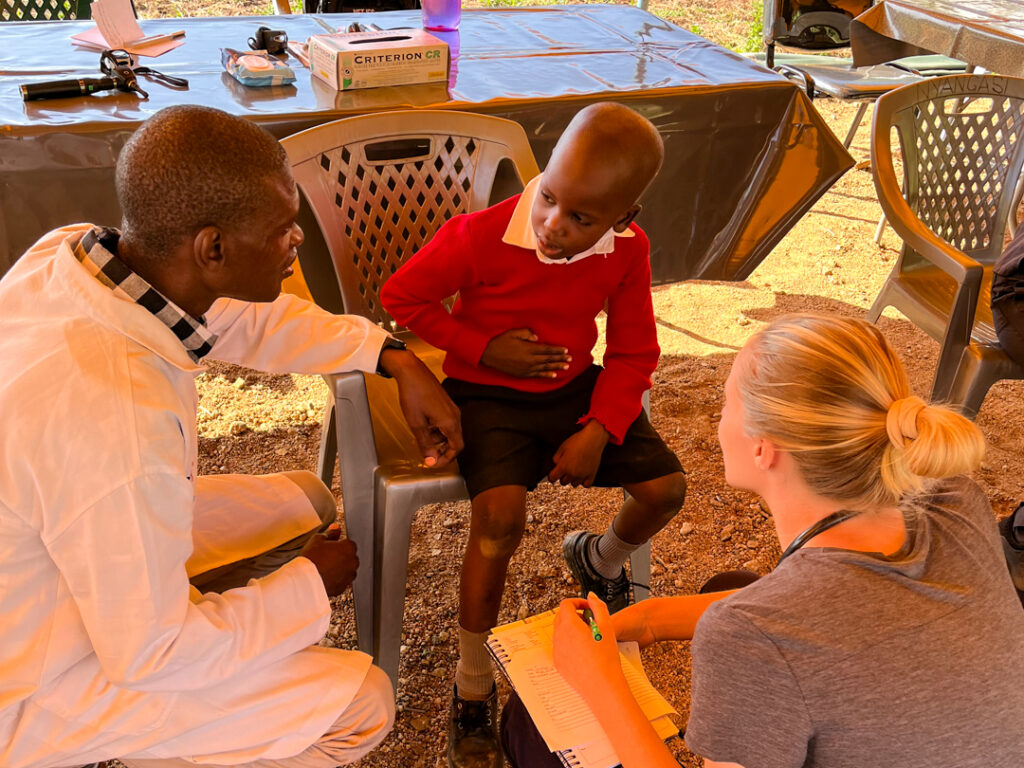
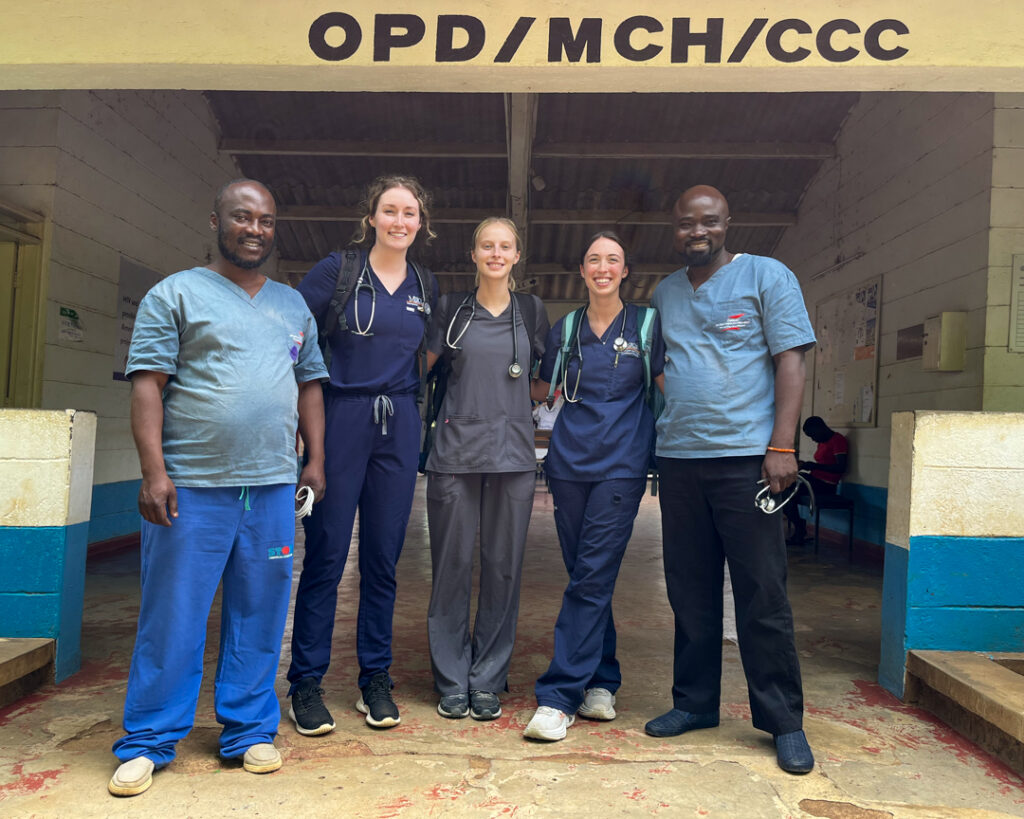
Those coming to the clinic first stopped at a triage tent and then were evaluated by one of us or a Kenyan clinical officer. The clinical officers were extremely helpful and shared their knowledge of common presentations and treatments for illnesses that we were less familiar with. After the initial exam, patients were sent for prescriptions, laboratory tests or to have a procedure done.
In the first week we saw over 800 children and community members, wrote 2,160 prescriptions and treated 85 positive malaria cases. We also were able to do several in-clinic birth control implant removals, laceration repairs and wound dressings. The first week of clinic proved to be extremely busy, but it also was a perfect time to get to know community members and children at the school.
Later in the week, we had the opportunity to build a home for a single mother of one of the students at the school. Our role was to use mud and stones to form walls between wooden support poles. Fortunately, many community members came out and showed us the proper technique for wall building. It was incredible to learn that skill from the community and was rewarding to contribute to the health and safety of a family outside of medicine.
The following two weeks were focused on working with the Kenyan clinical officers at the new community clinic and sub-county hospital. Each week, we traveled to the sub-county hospital to work in the inpatient unit and outpatient clinic. We performed wellness checks, prenatal ultrasounds, treated cases of malaria, performed wound care and delivered a baby.
We continued to open the community clinic to the public during the week and treated students, teachers and community members from the surrounding area. The clinic saw a variety of cases including malaria, wounds, viral illnesses, skin infections and vision problems requiring reading glasses.
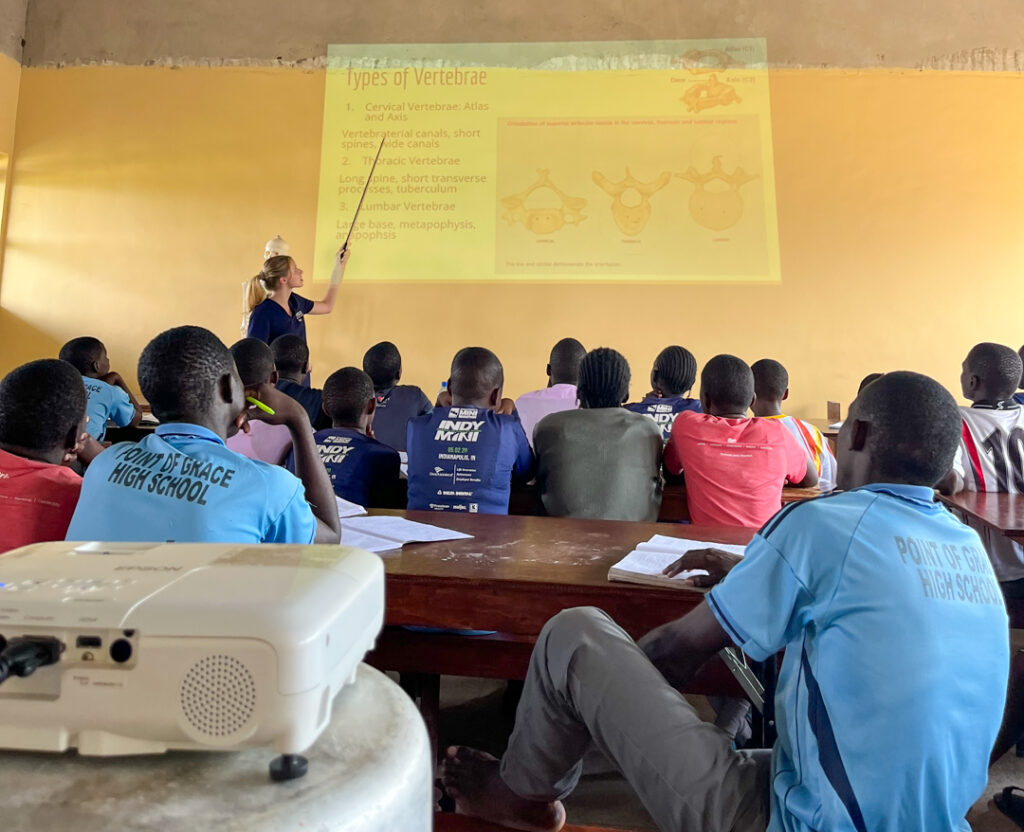
Outside the clinic and hospital, we spent time with the high school students at Point of Grace Academy. We held an assembly to pass out mosquito nets and discuss the importance of using them to prevent malaria. Here, we also answered any questions they had about their health or the medical profession. We were also graciously given the opportunity to teach some classes for the high school in the subjects of anatomy and organic chemistry. This gave us a chance to share the knowledge we have gained over our time in Mercer’s physician assistant program.
Overall, this experience was truly a unique opportunity for us as students.These weeks in Kenya gave us countless opportunities to not only further our skills as clinicians but also spend time with the community and learn about their school system, health care system and culture.








